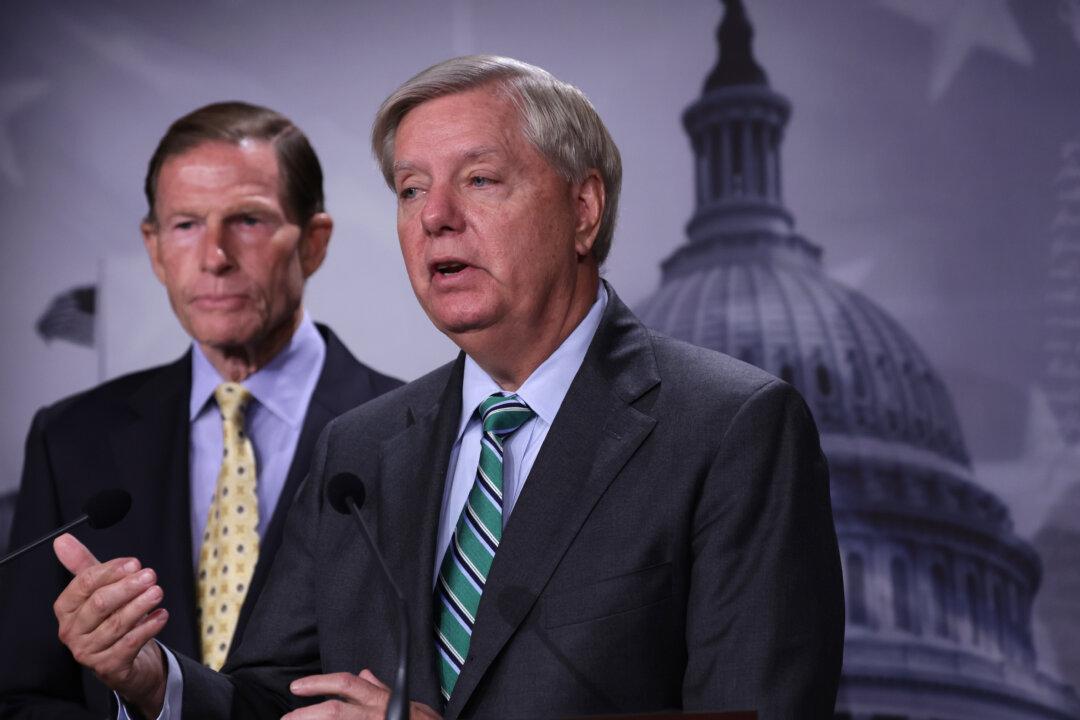Sen. Lindsey Graham (R-S.C.) on Nov. 22 testified before a grand jury in Atlanta probing the 2020 election.
Graham’s appearance came after a concerted effort by the South Carolina Republican to avoid taking the stand in an investigation about the role that allies of President Donald Trump may have played in allegedly trying to overturn the results of the 2020 presidential election in the state.





